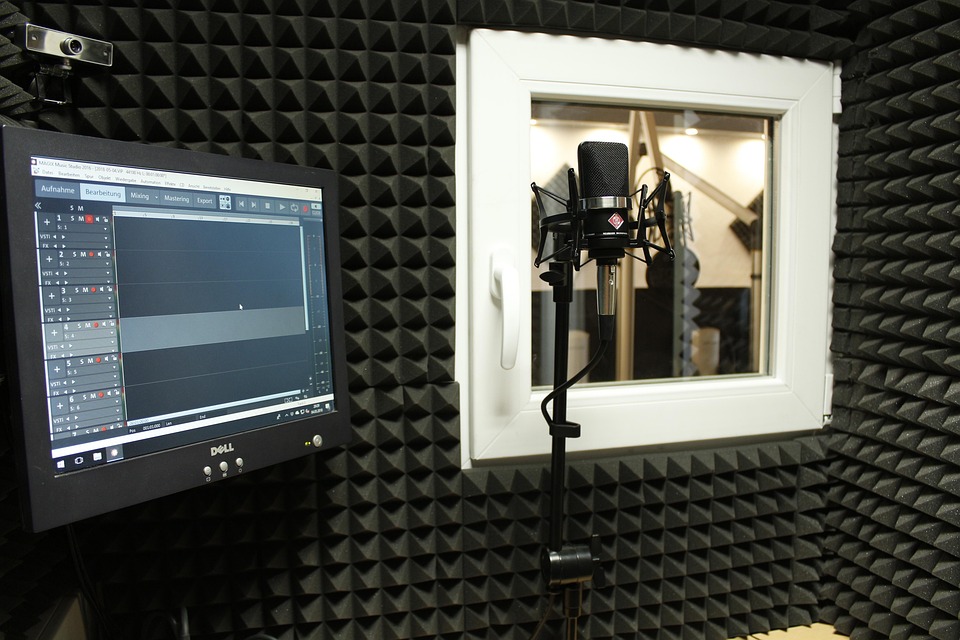In the world of hip-hop, beats play a crucial role in shaping the sound and success of a song. Airbit has emerged as a popular platform for artists seeking high-quality beats. This article delves into whether famous rappers utilize Airbit for their music production and how this platform influences the industry.
What is Airbit?
Airbit is an online marketplace that allows music producers to sell their beats to artists. Founded in 2010, it has grown significantly, becoming a go-to source for aspiring musicians and established artists alike. The platform enables producers to showcase their work, while artists can browse an extensive library of beats across various genres, including hip-hop, R&B, and pop.
One of the key features of Airbit is its user-friendly interface, making it easy for both producers and artists to navigate. Producers can upload their beats, set prices, and manage their sales all in one place. Artists, on the other hand, can easily search for beats that fit their style and budget. This accessibility has made Airbit a favorite among independent artists who may not have the resources to work with big-name producers.
Why Do Rappers Choose Airbit?
Rappers often seek platforms like Airbit because of the convenience and variety they offer. With countless producers showcasing their work, artists can find the perfect beat that resonates with their vision. This vast selection allows rappers to experiment with different sounds and styles, enhancing their creative process.
Moreover, Airbit provides a cost-effective solution for rappers who may not have a huge budget for music production. Many producers on the platform offer affordable licensing options, making it easier for artists to acquire quality beats without breaking the bank. This democratization of music production is particularly beneficial for independent and emerging rappers looking to make a mark in the industry.
Notable Artists Using Airbit
While it is challenging to pinpoint specific famous rappers who consistently use Airbit, many independent artists and up-and-coming rappers have found success on the platform. Notable figures in the industry often explore various sources for beats, and Airbit is among them. The platform has gained traction among a younger generation of artists who appreciate its accessibility and the chance to work with diverse producers.
Several lesser-known yet talented rappers have achieved recognition by leveraging beats from Airbit. These artists often share their experiences on social media, highlighting how they discovered beats that matched their style and helped elevate their music. This trend indicates that while mainstream artists may not publicly endorse Airbit, the platform is gaining popularity among those striving to break into the music scene.
The Impact of Airbit on the Music Industry
Airbit has significantly influenced the music industry by providing a platform where producers and artists can connect directly. This shift away from traditional methods of music production enables a more collaborative environment. Producers can showcase their beats without relying on record labels to promote their work, giving them more control over their careers.
Additionally, Airbit has helped to democratize music production. It has opened doors for aspiring producers who may not have had the opportunity to work with established artists. This newfound accessibility fosters a diverse range of sounds and styles in the hip-hop genre, allowing for innovation and creativity to flourish.
Challenges and Limitations of Using Airbit
While Airbit offers numerous advantages, there are also challenges associated with using the platform. One major concern for artists is the saturation of beats available. With countless producers uploading their work, it can be difficult for individual beats to stand out. Rappers may find themselves sifting through an overwhelming amount of material to find the perfect sound.
Moreover, the quality of beats can vary significantly. While many talented producers share their work on Airbit, not all beats meet professional standards. Artists must be discerning and take the time to listen closely to ensure they select high-quality tracks that fit their vision. This can be a time-consuming process that may deter some rappers from using the platform.
How to Use Airbit Effectively
For rappers looking to maximize their experience on Airbit, several strategies can enhance the process of finding the right beats. First and foremost, artists should take advantage of the platform’s filtering options. By narrowing down searches based on genre, mood, and price, rappers can save time and focus on beats that align with their artistic vision.
Additionally, building relationships with producers on Airbit can be beneficial. Many producers are open to collaboration and may be willing to create custom beats based on an artist’s specific needs. By engaging with producers, rappers can foster connections that lead to more personalized and unique music experiences.
The Future of Airbit in Hip-Hop
The future of Airbit in the hip-hop industry appears promising. As more artists embrace digital platforms for music production, Airbit is likely to grow in popularity. The ability to access a vast library of beats at any time aligns with the fast-paced nature of today’s music industry, where artists are constantly looking for new sounds to keep their work fresh and innovative.
Moreover, as technology continues to evolve, Airbit may introduce new features that enhance user experience. This could include improved discovery tools, collaborations with established artists, or even partnerships with major record labels. As Airbit adapts to the changing landscape of music production, it may solidify its position as a leading platform for rappers and producers alike.
Conclusion
In conclusion, while it may be challenging to definitively state that famous rappers use Airbit for their beats, the platform has undoubtedly found a niche within the hip-hop community. Its accessibility, affordability, and diverse range of beats make it an attractive option for independent artists and emerging talent. As the music industry continues to evolve, Airbit’s role may become even more significant, providing opportunities for collaboration and innovation.
FAQs
1. Can I find exclusive beats on Airbit?
Yes, many producers on Airbit offer exclusive beats, meaning that once purchased, those beats are no longer available for others to buy. This can be a great option for artists looking for unique sounds.
2. What types of licensing options does Airbit provide?
Airbit offers various licensing options, including non-exclusive and exclusive rights. Non-exclusive licenses allow multiple artists to use the same beat, while exclusive licenses grant the purchaser sole rights to the beat.
3. How do I know if a beat is of high quality on Airbit?
To gauge the quality of a beat on Airbit, listen carefully to the production quality, mix, and overall composition. Additionally, check producer ratings and reviews to understand their reputation within the community.
4. Can I collaborate with producers on Airbit?
Yes, many producers are open to collaboration. You can reach out to them through the platform to discuss custom beats or collaborative projects that fit your artistic vision.
5. How does Airbit compare to other beat-selling platforms?
Airbit is known for its user-friendly interface and extensive library of beats. While other platforms also offer similar services, Airbit’s focus on hip-hop and its pricing structure make it a popular choice among independent artists.

